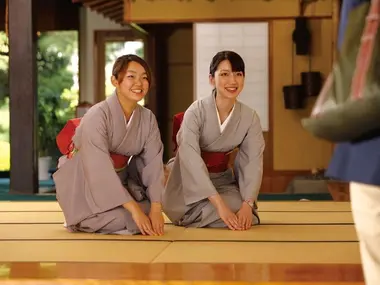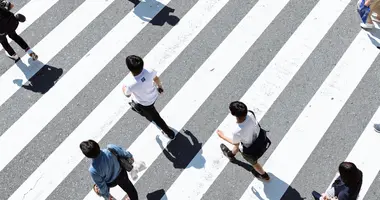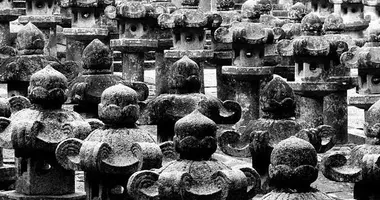Omotenashi, Japanese hospitality お持て成し
- Published on : 19/01/2018
- by : A.L.
- Youtube
The customer is god
There are words in some foreign languages that are impossible to translate. This is the case of the word omotenashi in Japanese. Often, we translate it as "Japanese hospitality" or "Japanese service", but the concept is much more complex.
The word omotenashi has come back on the scene in recent years, since Japan was awarded the 2020 Olympic Games. Japanese hospitality has been used as a promotional aspect and is now generating national pride.
A divine welcome
Japanese-style service, a current translation of the Japanese word omotenashi, is recognized and appreciated around the world. We sometimes hear that in the West, the customer is king, but in Japan, the customer is god! This should give you an idea of the wonderful welcome that you'll experience in Japan!
In Japan, you will feel like you are being welcomed as a guest of honor, even in the most modest of shops! Moreover, the level of language used by employees is invariably very polite language, known as keigo.
Read : Keigo
Impeccable service
In Japan, all your shopping will run like clockwork. No more waiting at the checkout, with employees off who-knows-where. Sometimes an employee will offer you a coupon or a small item if your wait was deemed too long. When leaving some high-end stores or after a stay in ryokan you will be seen off with extensive bowing by staff until you get far enough away.
Excellent service is not just limited to commercial services, but also extends to administrative or postal services. The door of the taxi that opens automatically is omotenashi. The bellboy who carries your bags to your room is also omotenashi. A complete stranger in the street who helps guides you to where you wanted to go can even be considered omotenashi. Whatever the case may be, the omotenashi aims to create a pleasant atmosphere for the client or the guest, to treat them politely and anticipate their desires.
An impersonal relationship
If omotenashi is a delightful experience, it is sometimes pushed to a level that may seem extreme. For example, Shinkansen conductors who bow to the passengers leaving each car! Some employees in shops are even forced to follow facial yoga exercises in order to limit cramps caused by the continuous smiling... While always polite, frank and genuine contacts with sellers are rare in Japan. They aim to provide the required service well, creating an impersonal interaction with the customer.
To read : Saying thank you in Japanese
















